In recent months, Fiji’s media has reported several heartbreaking cases of animal cruelty. We’re grateful to the media for shining a light on abuse that has quietly plagued animals in our communities for years—this is a topic that desperately needs more national attention. Earlier this year, Romeo—the dog rescued in April after a chain had been embedded in his neck for years—shocked the nation. Despite months of delays, the person accused of abusing him is finally scheduled to face court on 5 October.
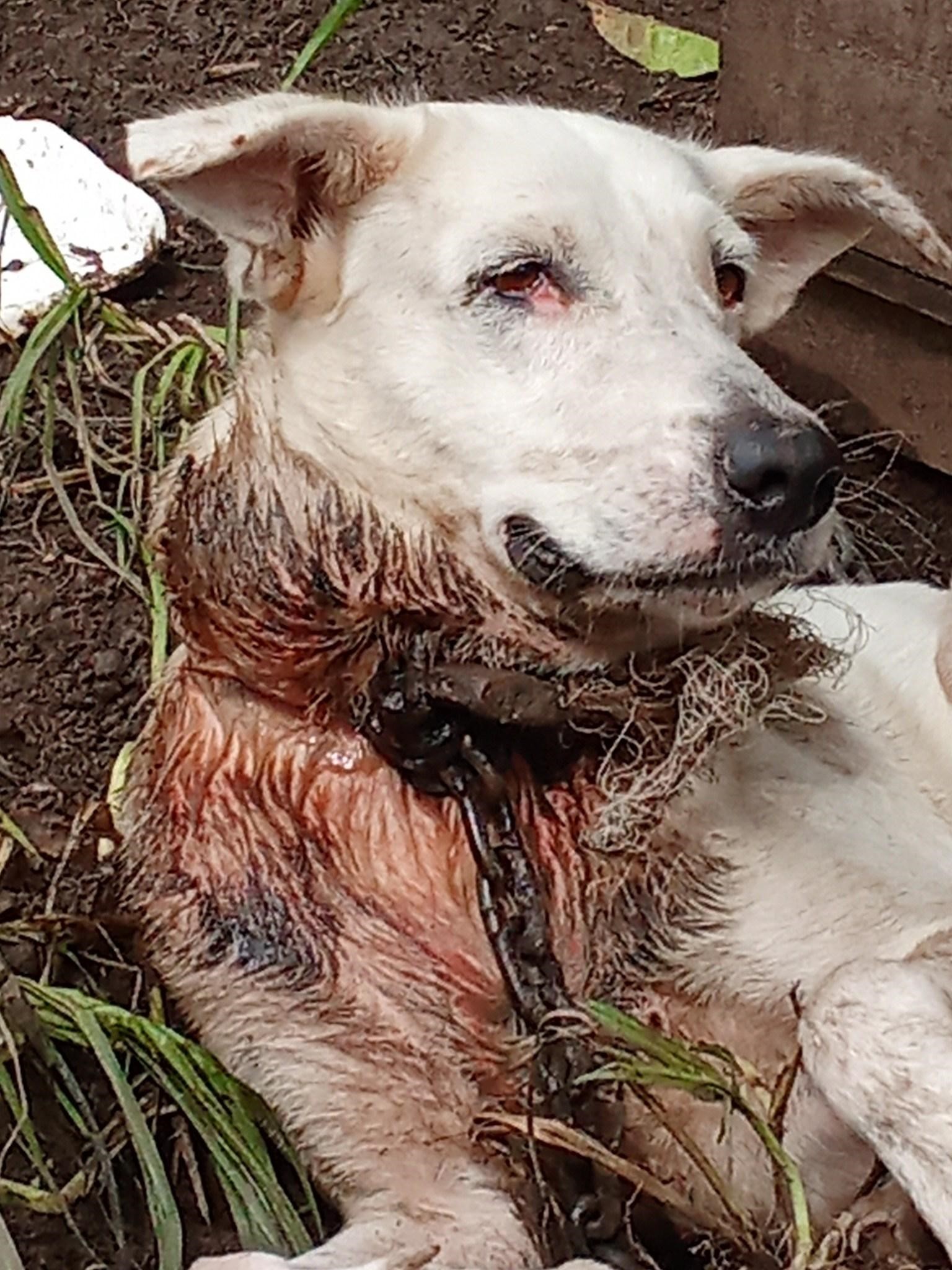
Romeo when found by a concerned neighbor.
At Animals Fiji, we have been persistently following up with police and the Sigatoka Prosecution Office to press for justice on Romeo’s behalf. And we’re not alone: together with SPCA Fiji, Greater Good Fiji, PASH, and Taveuni Animal Lovers, we sent a joint letter on 3 September to the Minister for Agriculture and the Commissioner of Police. That appeal called for more urgent action on animal cruelty, stronger enforcement under existing laws, and closer collaboration between government, police, and animal welfare groups.
Although Fiji’s animal protection laws are outdated and the government is working on updates, we cannot wait for new legislation—we urge Fiji Police to use the current law to its fullest extent to protect animals today.
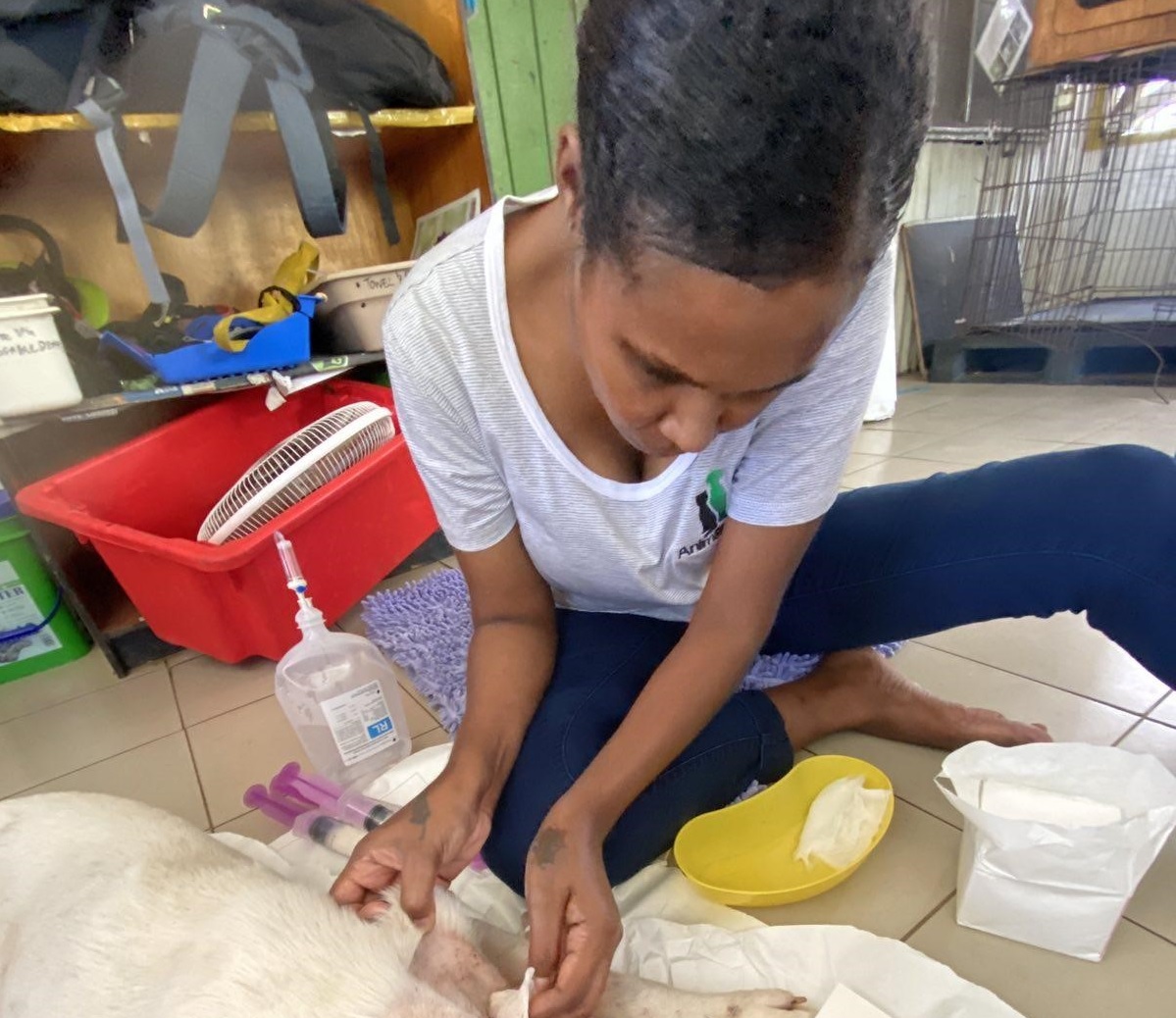
Romeo receiving treatment
Romeo’s and other cases like Fi’s, the puppy that was hacked to death with a cane knife in Labasa, stories are shocking—but sadly, they’re not unique. These stories can feel overwhelming, but they also show why every one of us has a role to play.

Romeo during recovery in hospital at Animals FIji
Cruelty happens in villages, communities, towns, and cities across Fiji. The good news is each of us can play a part in preventing it. Here’s how:
1. Desex Dogs & Cats—and Help Others Do the Same
Uncontrolled breeding creates more stray dogs and cats, which often leads to frustration, neglect, or abuse. Spaying and neutering (desexing) isn’t just about preventing puppies and kittens—it’s about preventing cruelty before it starts.
- Make sure your own pets (or animals you regularly feed) are desexed.
- Encourage and help neighbors, friends, or family to do the same.
- If cost is a barrier, contact Animals Fiji. We can often provide assistance or connect you to free or further subsidized desexing through our four clinics and other outreach clinics.
When communities reduce stray populations, tensions ease, and animals are less likely to become targets of anger or neglect.
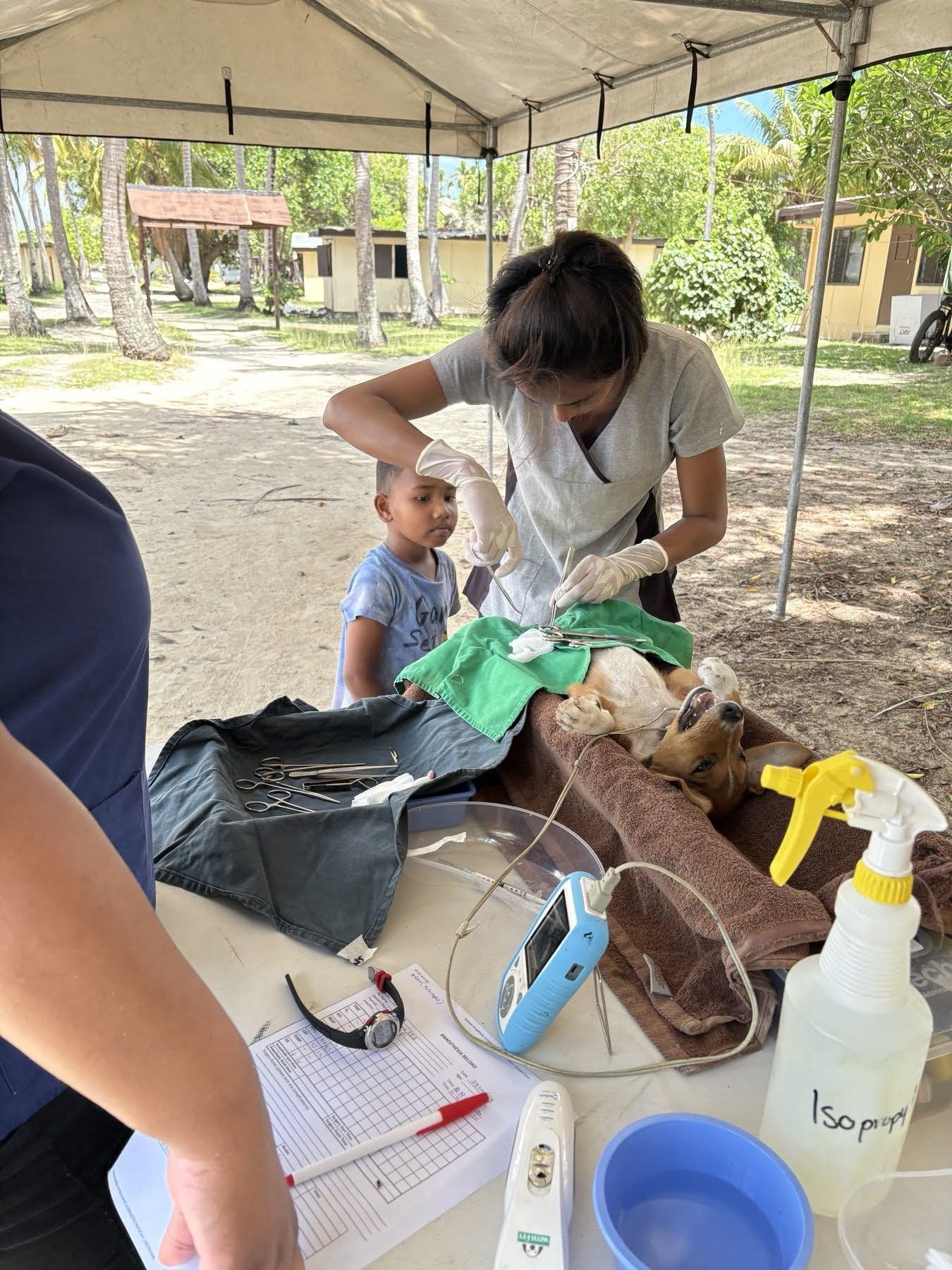
Dr. Ashmita Datt performing a desexing surgery with a children observer during an Animals Fiji outreach clinic.
2. Report Abuse and Neglect—It’s the Law
Fiji’s Protection of Animals Act makes cruelty and neglect crimes. If you see an animal chained without water or shelter, beaten, or left to starve:
- Report it to the police immediately.
- If you’re unsure how to proceed, Animals Fiji and other animal welfare groups can provide guidance or forensic evidence—but only police and the courts have the legal power to act.
Your willingness to speak up can save an animal’s life and send a clear message that cruelty won’t be tolerated.
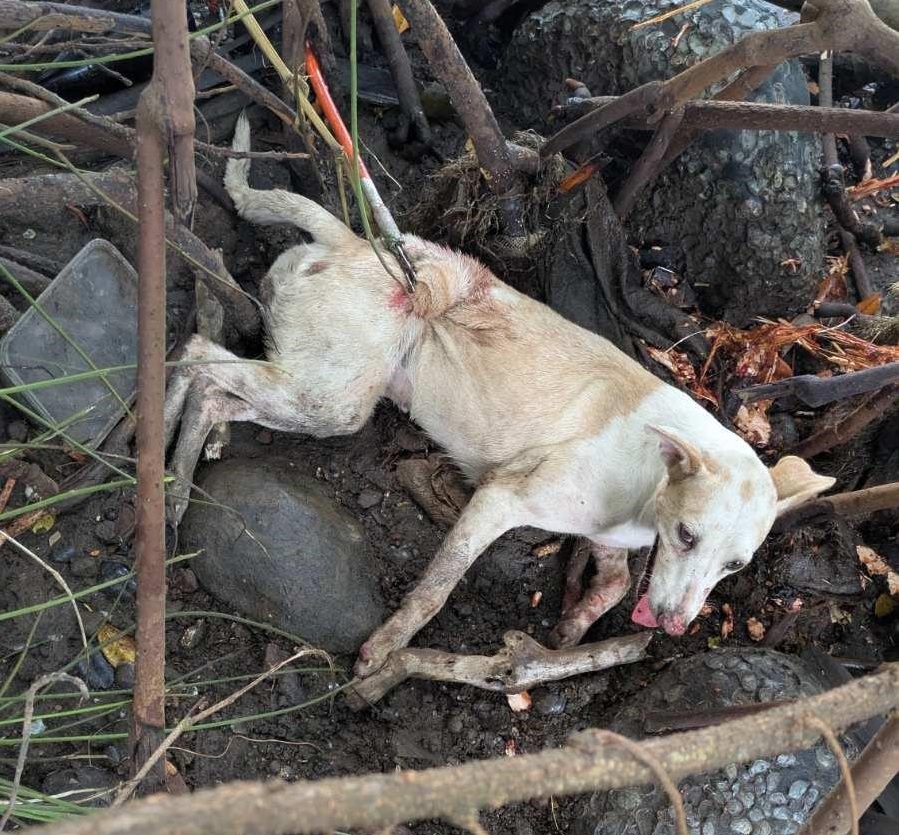
Limona—now safe at our shelter and waiting for a loving home—was found outside our Lautoka clinic after being stabbed with a fishing spear by youths.
3. Set the Example for the Next Generation
Studies worldwide show a strong link between domestic violence and animal abuse. Children who grow up witnessing cruelty often carry that cycle into adulthood. Breaking that chain starts at home:
- Handle frustration and disappointment without violence.
- Talk to your kids about treating animals with kindness.
- Show them that compassion is strength.
By choosing patience and empathy, you’re teaching the next generation a different way—a way that protects both animals and people.
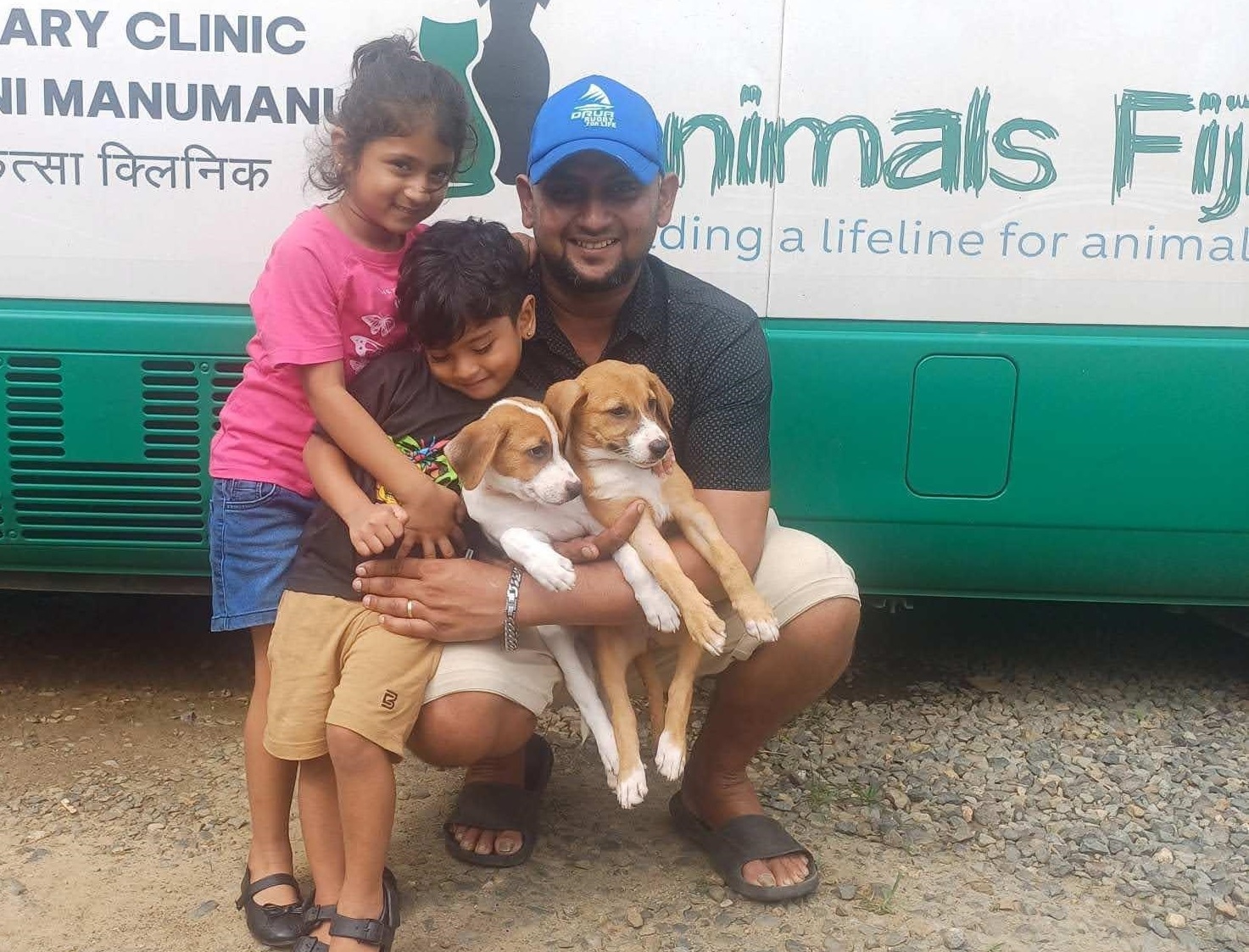
Father and his two children adopting two puppies from Animals Fiji shelter in Nad setting an example of love for animals.
4. Build a Caring Community Around You
Preventing cruelty isn’t only about reacting to bad situations. It’s about creating a culture where kindness to animals is normal:
- Share information about proper pet care and desexing from veterinarians and qualified professionals.
- Offer to help a neighbor fix a fence or provide food for a struggling pet owner.
- Support local outreach clinics, donate supplies, or volunteer your time. Even small acts—like checking on a tethered dog during a hot day—can make a big difference.
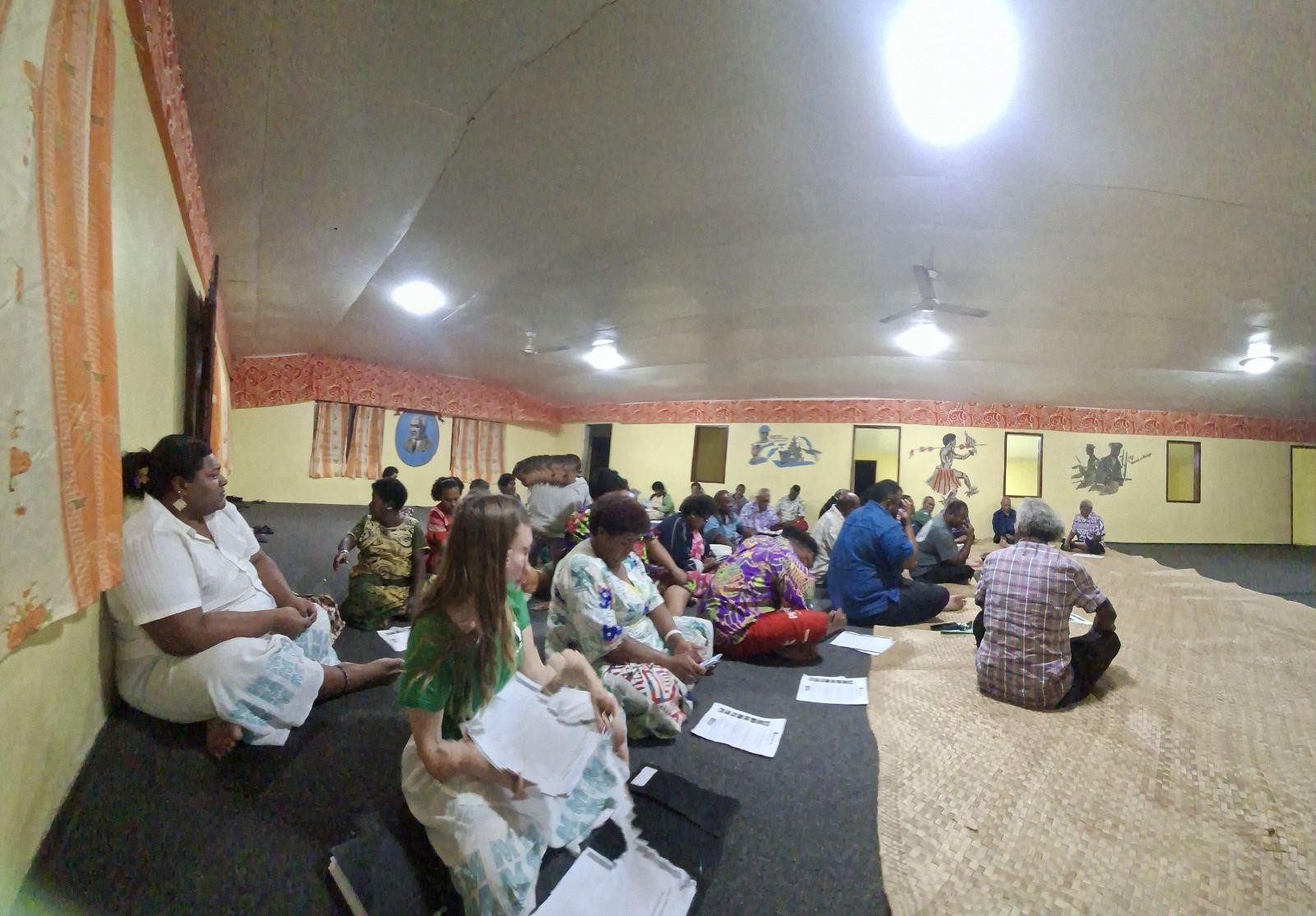
Animals Fiji attending and speaking at a village meeting in Vunavutu Village in Sigatoka recently.
Every single action matters. By desexing pets, reporting abuse, setting a compassionate example, and strengthening our communities, we can reduce suffering and create a Fiji where animals are treated with dignity and respect.
At Animals Fiji, we are committed to improving the health of animals across the country. If you are concerned about your pet’s health or would like to discuss preventive care like spaying and neutering, reach out to one of our clinics. Animals Fiji operates clinics in Savusavu (998-6253), Labasa (998-6250), Nadi (993-6647), and Lautoka (998-2026), and we also conduct outreach clinics in other areas.
If you need advice or support, reach out to Animals Fiji at www.animalsfiji.org Vinaka vaka levu to the Fiji Sun community for continuing to speak out for animals.